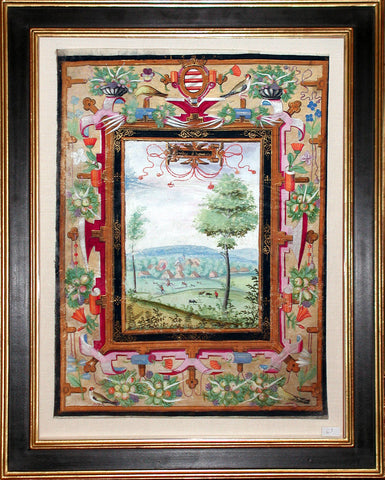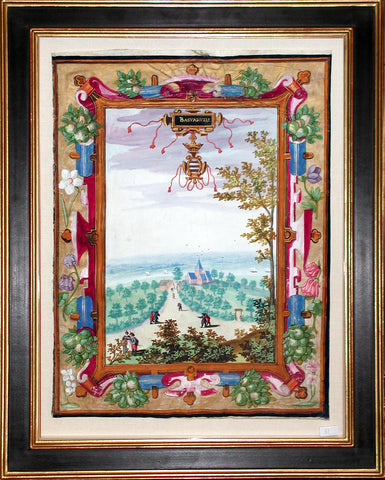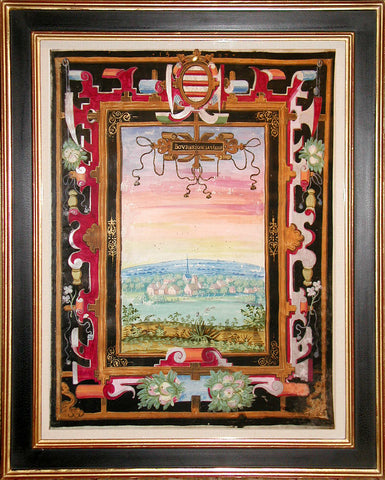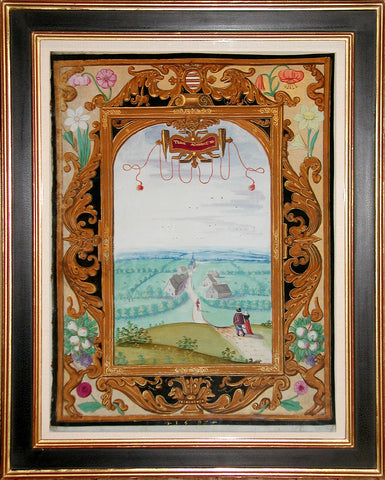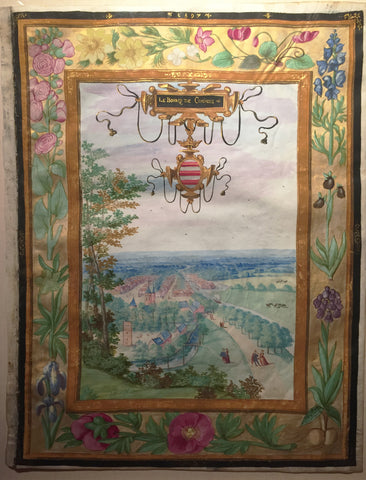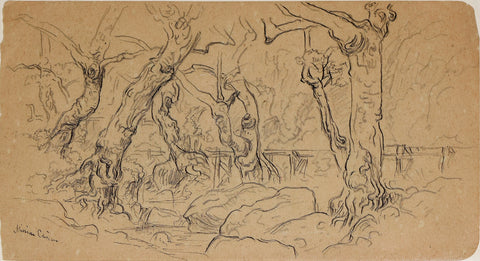
Samuel Colman (1832-1920), San Gabriel, California
Samuel Colman (1832-1920)
San Gabriel, California
Inscribed: "Mission Cañon"
Watercolor on paper
Paper size: 4 5/8 x 8 1/2 in.
Like so many artists who became inspired by the landscape of the West, Samuel Colman came from the East. Born in Portland, Maine, he grew up in New York City, where his father’s publishing house on Broadway was a center of activity for artists and writers. His own interest in art was fostered by this early exposure to the New York art world, and after studying for a brief time under Asher B. Durand, Colman painted throughout the 1850s and 1860s in the manner of the Hudson River School. At the very young age of twenty-two, he was named an associate of the National Academy of Design, signaling the acclaim he had already achieved. He was a founder of the American Society of Painters in Water Colors.
In 1860, Colman departed for Europe to broaden his artistic repertoire. He visited France, Italy, and Switzerland, and was one of the first American artists to paint in the more remote locales of Spain and Morocco. But it was when he first traveled to the American West, in 1866, that he found one of his greatest sources of inspiration. Spurred by the sights and expanses of the West, in the mid-1880s Colman began a series of trips out west in search of landscape subjects such as this one. The quiet but monumental beauty that he witnessed, and captured on paper, represents a quintessential vision of the American spirit as embodied by the country’s vast landscape. Alongside Moran, Colman is regarded as preeminent among those who depicted the West’s geological wonder in the nineteenth century.
We Also Recommend

